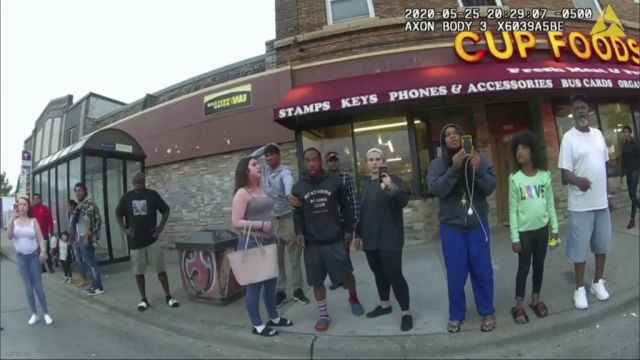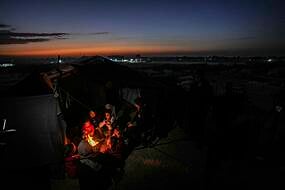The teenager who recorded George Floyd being pinned to the ground by a Minneapolis police officer has been given a special citation by the Pulitzer Prize board.
Darnella Frazier was cited “for courageously recording the murder of George Floyd, a video that spurred protests against police brutality, around the world, highlighting the crucial role of citizens in journalists’ quest for truth and justice,” the Pulitzer Prizes said.
Ms Frazier was 17 when she recorded the arrest and death of Mr Floyd, a 46-year-old black man, on May 25, 2020. She gave evidence at the trial of former Minneapolis police officer Derek Chauvin that she was walking to a corner grocery store to get snacks with her then-nine-year-old cousin when she saw a man being pinned to the pavement.
She said he was “terrified, scared, begging for his life”.
Congratulations to #DarnellaFrazier. #Pulitzer pic.twitter.com/MdXk1Sspqo
Advertisement— The Pulitzer Prizes (@PulitzerPrizes) June 11, 2021
She said she did not want her cousin to see what was happening so she ushered the girl into the store then went back out to the street and began recording because “it wasn’t right”.
She kept recording even though she said she felt threatened when Chauvin ignored the cries of bystanders and pulled out his Mace as he knelt on Floyd’s neck for nine minutes and 29 seconds.
Her video, which shows Mr Floyd repeatedly saying he could not breathe before going limp, was posted to Facebook hours after it was recorded, sparking outrage in Minneapolis and beyond.
It was also a prominent piece of evidence in Chauvin’s trial. Chauvin was convicted in April of second-degree unintentional murder, third-degree murder and manslaughter. He will be sentenced June 25.
The Pulitzer Board also announced that the Star Tribune of Minneapolis won the breaking news reporting prize for its coverage of Mr Floyd’s murder and its aftermath.
It is unusual but not unprecedented for the Pulitzer Board to award citizens who capture news events; the famous photo of a firefighter cradling an infant after the 1995 Oklahoma City bombing was taken by Charles Porter IV, a bank credit officer, and distributed by the Associated Press.







